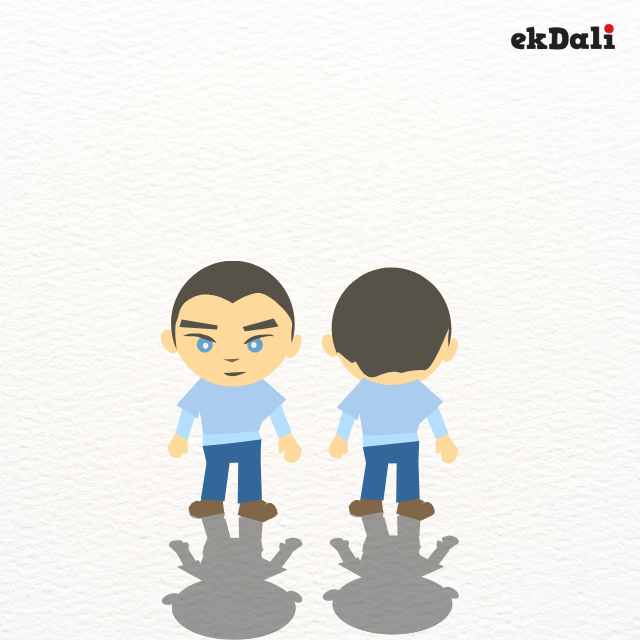Congratulations on recognizing the importance of this ability for your child's present and future. This age group has a lot of social learning to undertake, but the good news is that they have youthful brains that are ready to absorb everything you have to teach them. You're off to a good start by closely studying him and being explicit about your family's ideals around speaking up and remaining strong.
Creating the Social Scene
Your youngster is on the verge of what developmental specialists refer to as "early childhood." This stage is characterized by rapid fire brain changes in many areas, including emotional regulation, comprehending social relationships, and communication skills (such as using more words and less biting to express oneself). As each youngster discovers the delight of having friends, they also discover the agony of fighting (often literally, as with a punch to the gut!). However, how each youngster responds to this conflict is determined by a variety of factors, including their own personality and temperament, as well as adult influence.
You seem concerned that your youngster seems unclear of how to respond to his cousin after being hit. Because he didn't punch him back, his reaction demonstrates that he understands emotion regulation. I know many children this age who would have attacked without pausing to take a breath and notify their mother that they had been hit (scene of my children during sibling battles). Despite the fact that your son was plainly agitated, he demonstrated the capacity to speak with you in the heat of the moment. His first reaction of looking to you indicates that he perceives you as a source of comfort and advice.
Should He Retaliate or Not?
Which brings us to your question: how do you guide him? I recall seeing my preschool-aged daughter standing next to a much taller, bigger classmate who pushed her. I would never tell my precious, innocent child to "push her back," but when I witnessed her do it (so violently that the girl lost her footing), I was proud of how she stood up for herself.
I know some parents who would counsel their children to fight back if they were ever pushed or hit by another youngster. I understand that in some neighborhoods, being tough is considered a method to keep safe, and that this parenting reaction helps their child stay safe. I'm not sure if this is the case for you, but in general, children do better socially with less aggressive actions, so it's important to educate them on different ways to respond.
Make an effort to be assertive rather than passive or aggressive.
When compared to the two most typical sorts of responses to social conflict, assertiveness is seen as a key element of effective social skills. According to research on social skills in childhood, developing assertiveness will not only shield your son from bullying behaviors, but will also likely boost his confidence and overall self-esteem, resulting in stronger social ties as he grows older. Passive replies cause issues with confidence and self-esteem; violent responses have been connected to bullying and peer rejection.
Staying cool yet clear with a commanding voice (rather than yelling) is essential for expressing oneself assertively rather than passively or violently. You may role-play this with your youngster at home, guiding him to strike that balance. Use his ability to not hit back to teach him to stop and consider before responding the next time.
He can learn the following steps:
1. Take a deep breath to relax before saying anything.
2. Consider: Before responding, count to five. Consider your feelings and what you want to express.
3. "That really hurt," say gently but plainly. If you hit me, I'm not going to want to play with you."
Some young children require more experience and self-regulation development before they can utilize this strategy, but for those who are ready, it's a skill that goes a long way toward developing assertiveness. At this age, children require more guidance and reminders about what to do, and adults who model social skills can be a powerful impact.
However, as they grow older, school-age children gain more from resolving these social issues on their own, unless safety or bullying is a factor. Bullying differs from regular disagreement or even teasing in that it entails a habit of targeting a youngster perceived weaker in some way (e.g., size, popularity), rather than a single fight or series of fights with a flip-flopping power dynamic.
Bullying Reactions
You express concern about what your son will do if he is bullied. If his experiences are consistent with the above definition of bullying, he need adult help. You can discuss with the school how to involve teachers and other staff (perhaps recess supervisors) in monitoring the situation and intervening with the bully to stop the conduct. Although being more aggressive in general may help safeguard your son from being bullied, the capacity to halt the bullying is beyond his powers at this age.
In conclusion
Some children are more naturally aggressive than others, but research in social skill development demonstrates that assertiveness abilities may be taught. Begin with your child's social talents and work your way up by teaching through role-playing at home, where he feels safe practicing new skills. Before you know it, he won't even look at you when there's a social issue since he'll know what to do and say, and he might even teach his younger cousin a few things in the process.
























